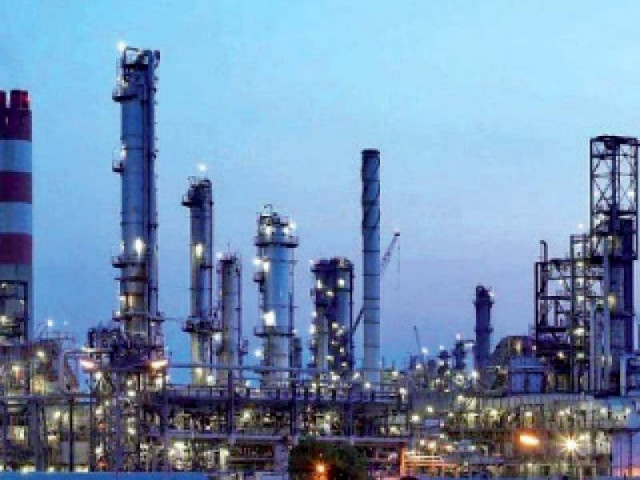Attock Refinery shuts down for 8 days
Low demand for furnace oil, lack of technology lead to temporary closure

With the onset of winter, petroleum product refineries are back in hot water. The drop in temperature has decreased demand for the outdated furnace oil (FO), making Attock Refinery Limited (ARL) the first casualty of the season, as it faces a shutdown.
The temporary closure of the refinery, that hosts an installed capacity to process 53,400 barrels per day, will likely multiply the ongoing energy crisis in the country.
“ARL is temporarily shutting down its main distillation unit for approximately eight days, due to ullage constraints resulting from low demand for furnace fuel oil,” ARL Company Secretary, Saifur Rehman Mirza said in a notification to the Pakistan Stock Exchange (PSX) on Tuesday.
“During this period, some necessary maintenance jobs will also be carried out,” he added.
“Consequently, as a result of this shutdown, the refinery will be operating at a capacity of 35%. However, adequate inventories of products are available to meet current requirements,” elaborated the company secretary.
This has been intimated to the Ministry of Energy (Petroleum Division) and the Oil and Gas Regulatory Authority (Ogra) accordingly, said the notification.
The other four refineries are also feared to be facing temporary and/or partial closure, as has been the case during every winter since the past four to five years. The partial closure of the refineries (or slowdown in output) will also reduce production of other products, including petrol and diesel.
As it is an expensive oil for power generation, furnace oil is mainly used for electricity production, mostly during the summer – when the demand for energy increases. Since demand for energy has gone down in winter, the government has stopped producing power using furnace oil.
Speaking to the Express Tribune, Ismail Iqbal Securities Head of Research, Fahad Rauf said, “The closure of the refinery (ARL) in the North will result in local oil and gas exploration firms slowing down their output on the fields to cope with the situation.”
To recall, the demand for gas had gone up substantially with the start of winter season, especially in colder areas like Balochistan where people use gas-based apparatus to remain warm.
“The development will mean that the country has to overcome shortages through expensive imports,” explained Tahir Abbas, Head of Research at Arif Habib Limited (AHL), adding that, “The demand for diesel remains high these days. At the same time, diesel has become an expensive fuel in the global market.”
All the local petroleum oil refineries have outdated technology producing petrol and diesel, and lack the means to convert the surplus furnace oil into petrol and diesel.
“The cost of updating refineries runs into billions of dollars. However, refineries have demanded that the government announce incentives by introducing a new refinery policy. This will allow them to arrange (borrow) the multibillion dollars needed to upgrade their technology,” said Rauf.
“However, the change of government and continued political instability has delayed the introduction of a new refinery policy,” he noted.
The total demand for furnace oil has dropped to 2-2.5 million tonnes per year in the country from around 9 million tonnes in 2017-18.
In Pakistan, there are five major oil refineries that have a combined installed capacity of slightly over 417,000 barrels per day. These include Cnergyico PK Limited (formerly known as Byco Petroleum), Attock Refinery Limited (ARL), National Refinery Limited (NRL), Pak Arab Refinery (Parco), and Pakistan Refinery Limited (PRL).
The country usually meets around 70% of its demand for petrol and approximately 50-60% of its demand for diesel through imports.
Published in The Express Tribune, December 14th, 2022.
Like Business on Facebook, follow @TribuneBiz on Twitter to stay informed and join in the conversation.



















COMMENTS
Comments are moderated and generally will be posted if they are on-topic and not abusive.
For more information, please see our Comments FAQ